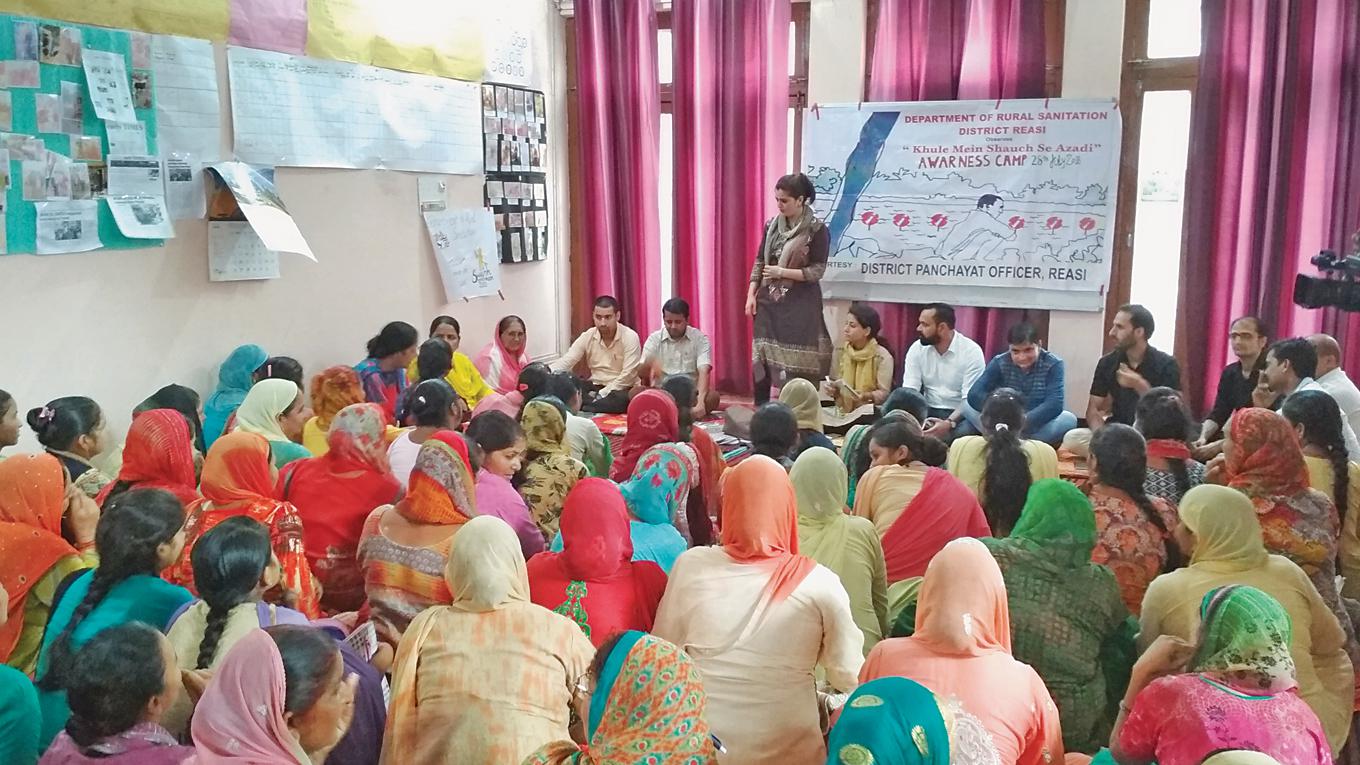-

Example of a successful public private partnership
he Zila Swachh Bharat Prerak (ZSBP) programme was instituted in response to the Government of India’s appeal to the corporate world to support the implementation of the Swachh Bharat Mission (SBM). Responding to this call, Tata Trusts collaborated with the Ministry of Drinking Water and Sanitation (MDWS) in 2016. Under the programme, 600 young professionals, one in each district, were appointed to boost the SBM. In December 2017, the Ministry of Women & Child Development collaborated with the Trusts, to provide human resource support, by launching the Swasth Bharat Preraks Initiative to contribute to nation-building by catalysing change at the grassroots level. The young professionals, known as Zila Swachh Bharat Preraks (ZSBP), aided the government in strategic planning for the implementation of SBM that included preparing District Swachhta Plans, creating time-bound targets in ‘mission mode’, preparing, monitoring, and evaluating protocols, and planning large community-wise interventions. The ZSBPs have been of direct support to the District Collectors to consistently work towards making districts ODF. The initiative energised the mission in the districts. The deployment of quality, manpower helped in implementing and monitoring innovative behaviour change communication campaigns, ramping up toilet construction and usage, and introducing innovative technologies for waste management, thereby, improving rural sanitation. ZSBPs have become the eyes, ears, and hands of the District Collectors on SBM, improving efficiency and becoming catalysts for social change as they inspire local administrations to outperform. The ZSBPs were trained by a team from the University of Chicago (Booth School of Business), along with sector experts, in areas of project management, change management, community approaches to sanitation and data-driven decision making, which equipped them to address on-ground challenges. The first batch of ZSBPs was deployed in March 2017. Over the next nine months, more than 515 ZSBPs were deployed across the length and breadth of the country. The ZSBP programme is a wonderful example of a successful public-private partnership. Tata Trusts took on the onus of the national recruitment drive, interviewing and hiring of talented young professionals, and paying their salaries and allowances. The Ministry of Drinking Water & Sanitation (MDWS) facilitated the placement of ZSBPs at the districts and coordinated with the state governments. Together, the partnership shared the responsibility of the initial training and capacity building, monitoring and evaluating progress and performance. Training and technology These young and highly-skilled professionals were a diverse lot, with backgrounds in management, engineering, law, social work, architecture, medicine, etc. Their average age was 25 years; 35 per cent of them were women; 80 per cent of them had postgraduate degrees; 70 per cent had two years of work experience. But each one went to the field with the same goal of ensuring that every Indian has access to safe sanitation facilities. As the ZSBPs began their journey, they soon realised that every state and every district brought with itself a unique set of challenges and opportunities. The ZSBPs had to work around socio-cultural norms, language barriers, lack of resources, and in some cases general apathy.
-
The ZSBPs have proven to be an ally of the district and state administrations, wherever they have worked
The programme adopted a decentralised approach and gave a broad profile to the ZSBPs and left it to the district and state administrations to utilise their expertise on hand as per local requirements. While some ZSBPs worked as Master Trainers imparting Community Approaches to Sanitation (CAS) training to ground-level staffs and Swachhagrahis, others worked with the administration in finding bottlenecks through data and trend analysis.
When the ZSBPs came on ground in April 2017, the national sanitation coverage was standing at 57 per cent. By May 2019, its national coverage stood at 99.11 per cent, with over 559,000 ODF villages. While the credit for this significant improvement goes to all the people associated with SBM (G), the ZSBPs have proven to be a great ally of the district and state administrations, wherever they have worked. The ZSBPs have not only played a critical role in ensuring increase in Individual House-hold Latrine (IHHL) coverage, but even more importantly, they have ensured substantial improvement in transparency factors like geo-tagging, verification of ODF villages, and repair of dysfunctional toilets.
As the Swach Bharat Mission (Grameen) programme moves towards ODF Sustainability and solid and liquid resource management, the ZSBP programme has also stepped into Phase 2, with a major focus on innovative ODF Sustainability measures and waste management solutions. Under the Swasth Bharat Preraks initiative, Tata Trusts, similarly, provide one district-level Prerak, in each district, who work with the district administration to drive convergent action, roll out of technology-based monitoring of ICDS services, capacity building of front line functionaries, and in social and behaviour change communications. Similarly, a State-level Prerak helps in facilitating work for the District Leads and provides high-level inputs for State-level action plans majorly focusing on the POSHAN Abhiyan, ICDS CAS, convergence plans and Jan Andolan. Over 300 Preraks are walking this path across 27 states and five Union territories.
“The Swasth Bharat Prerak programme implementation model is unique in design and implementation,” observes Rajan Sankar, director, The India Nutrition Initiative (TINI), Tata Trusts. “It recognises that nutrition as a public health intervention cuts across sectors and a wide spectrum of stakeholders. Working together is not a luxury, it is a must if we have to overcome this huge challenge”. Given its success across current districts, the Swasth Bharat Prerak programme and Zila Swachh Bharat Prerak programme are being scaled to all districts in India.
Biogas
BioEnergy will showcase its innovative biogas technology in India
Mobility
Ather aims to produce 20,000 units every month, soon
Green Hydrogen
German Development Agency, GIZ is working on a roadmap for a green hydrogen cluster in Kochi
Renewable Energy
AGEL set to play a big role in India’s carbon neutrality target



















